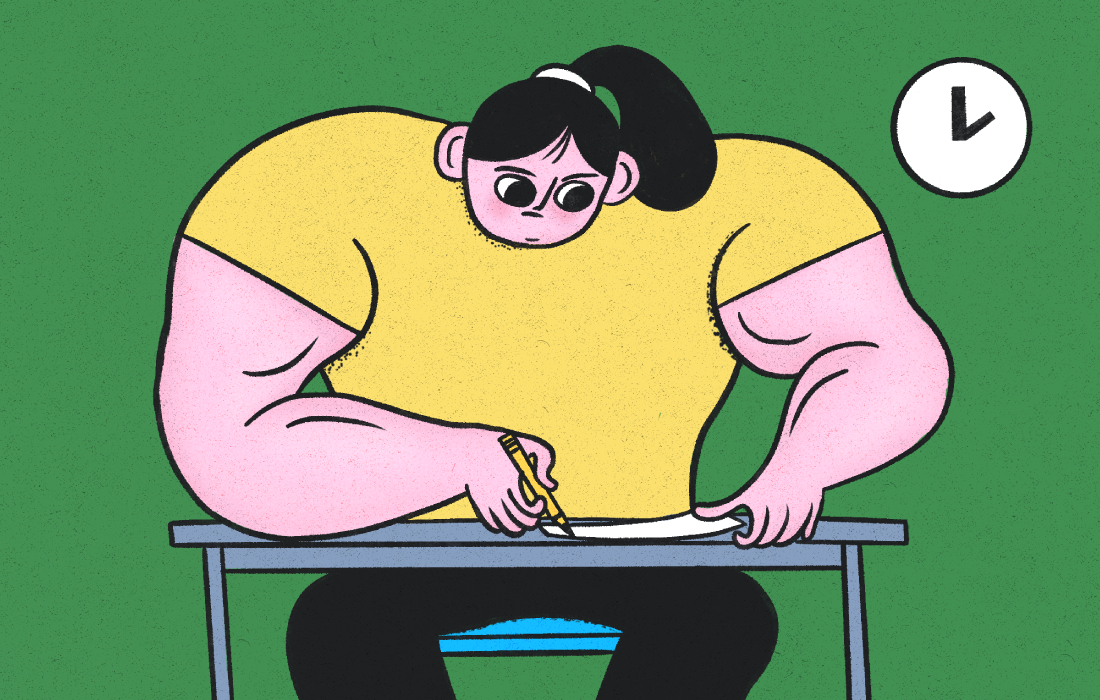
In the upcoming weeks, the fall term will finish and finals will begin. It is crucial for students to become familiar with proven study strategies that can determine almost half of their course grade. It’s even more important when your transcripts affect virtually everything in your life — from employment and grad school applications to finding internships.
We have all experienced the sensations of cramming for an exam at the last minute — staying up all night to study by drenching yourself in caffeine and then fighting to open your eyes on test day only to receive a grade that does not satisfy you.
Some tips and tricks for finals that I present here will make you mentally refreshed and physically healthy as well as help you receive a grade boost — all of them based in science.
It’s important to recognize the impact of life habits on the grades we receive and our mental wellbeing. Lifestyle choices can improve mental health to the extent that these habits have a branch themself in therapy — lifestyle therapy.
Habits that you already should have, such as getting enough sleep, regularly exercising, and maintaining a balanced diet are essential at this time. These habits will keep you healthy so you do not miss your exams due to sickness, and improve your brain function and mental health.
Then, there is the branch of study habits that deals with memorizing faster to minimize performance anxiety and achieve higher grades.
A great method to encode information deeper is active recall. This is when you not only identify the information on your notes by passively reading them, but also actively retrieve the chaotic data sitting in your brain by quizzing yourself over and over. Active recall makes great practice for retrieving information so that when you are writing exams you can remember everything.
Another method is called the Feynman Technique. Essentially, it is where you teach someone the topics you are studying. In your first attempt, you may not be able to recall all the details, so you’ll have to go back to study the information for a second time. If you repeat this cycle a couple of times, you’ll eventually feel like you have a good grasp of the topic.
Ebbinghaus’ forgetting curve says that we forget information rapidly — almost 70 per cent of learned information within a day. So make sure to review daily after your lectures to increase retention. Don’t wait until the last minute to go over your notes because you probably have forgotten everything, and will have to relearn the entire lecture.
If you ever feel you cannot focus at home, you can always go somewhere else to clear up your mind. Finding a new study space is one of the best ways to minimize distractions to improve concentration. Take advantage of the libraries the University of Saskatchewan has for a quiet study space on any day — they’re even open on weekends specifically to serve students that want to study.
Or, if you live far away from campus, you can go to a cafe or try studying at a friend’s house to improve your concentration. In summers, when the weather is nice outside you can even study in the sun.
Lastly, for the sake of your mental health, take breaks when you need them. Socialize with friends, commit to a hobby or go outside when you feel overwhelmed with the amount of schoolwork you have. Taking care of your mental health will prevent burnout from high amounts of stress that inflicts 45 per cent of college students.
Finals can be stressful and hard, but with these tips backed by science, you’ll ace your exams in no time.
—
This op-ed was written by a University of Saskatchewan undergraduate student and reflects the views and opinions of the writer. If you would like to write a reply, please email opinions@thesheaf.com. Annie is a first-year undergraduate student, and the staff writer at The Sheaf Publishing Society.
Graphic: Jaymie Stachyruk | Graphics Editor
Leave a Reply